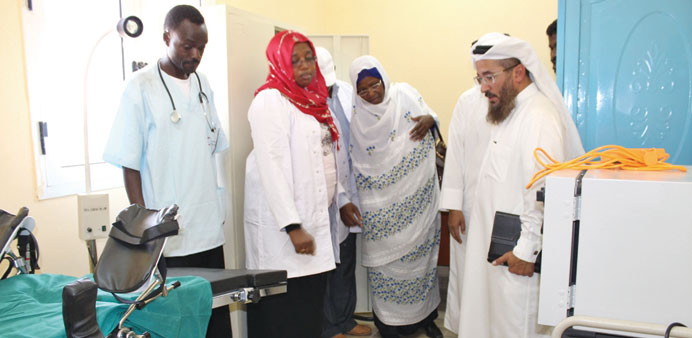Qatar Red Crescent (QRC) announced that it allocated QR600,000 for the rehabilitation and recovery of flood-affected health facilities in Sudan’s River Nile State.
The QRC efforts include a project to rehabilitate and equip the Saqadi hospital, which was recently hit by heavy rainfall and floods, causing loss of lives and havoc in terms of property and infrastructure.
Preparations for the project should start immediately after conducting reassessment of the situation in accordance with the recent developments. Nearly 23,000 people, the inhabitants of 14 villages in Al Damer municipality, are expected to benefit from the project.
QRC secretary-general Saleh bin Ali al-Mohannadi said the project is part of QRC’s development and rehabilitation contributions to the least developed countries.
“Qatar Red Crescent has been working since 2003 to increase its contributions destined for Sudan through our office there. We have accomplished several development projects and implemented a number of relief projects, especially in the health sector and reconstruction in Darfur, where a number of health centres and rural hospitals have been rehabilitated in addition to the establishment of surgical camps for conducting paediatric, cardiac, thyroid and eye operations,” he explained.
QRC will fully implement the project in the region short of health facilities, in co-ordination with the Ministry of Health in River Nile State and Sudanese Red Crescent Society.
In its capacity as the main provider of health services in the region, the Ministry of Health will be responsible for running the project. Sudanese Red Crescent will activate the popular role played by health committees to support the project to ensure its sustainability.
Last year, QRC provided urgent relief assistance to the victims of floods that hit Sudan during the same period, benefiting nearly 8,000 people. It also works on the implementation of several projects in the areas of water, sanitation, food security and other educational and social development projects through its Khartoum office.

